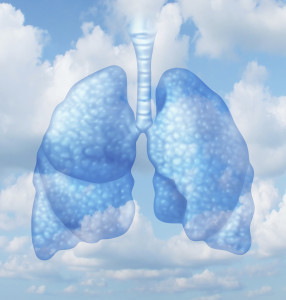Last week we interrupted our series about communication with your lung doctor, to bring you important news about pneumonia vaccinations. Because the Florida Lung, Asthma and Sleep Specialists are a patient-centric organization, the FLASS blog now returns to the topic of doctor-patient communication, for Part 2 of our 2-part series.
organization, the FLASS blog now returns to the topic of doctor-patient communication, for Part 2 of our 2-part series.
We invite you to click here to discover or review our first five tips for talking with your lung cancer doctor. Communication is a learned skill, and the doctor-patient relationship is unique, so we hope you can utilize these little tips to help you understand your treatment and attain the best results from your regimen of care.
Five More Tips for Communicating with Your Lung Cancer Care Doctor and Team!
6. Talk to the Nurses
The Florida Lung, Asthma, and Sleep Specialists pride themselves with a very knowledgeable and compassionate staff of nurses and medical professionals. Please feel free to use your time with them to discuss questions and concerns. If they do not know the answers, perhaps they can help you better phrase questions and concerns for the doctor. In some instances, they might simply have more time to talk with you than your doctor on a given day. They can also review his orders and your treatment plan with you.
7. Use Those Visual Aids
This tip comes from good teachers, good lecturers, and good salesmen. Take advantage of visual aids. Educators tell us that every person has a different learning style, one which is best for them.
For some people, seeing the information visually makes a diagnosis, prognosis or treatment easier to understand. It is perfectly permissible to ask to see x-rays or scans. You can even ask the doctor to draw a little diagram or recommend a video.
8. Light-bulb Moments!
Tell us what works for you! If a member of your treatment team explains something in a specific manner and you feel the “light-bulb” of understanding ignite, then please, let us know. At FLASS, we really want you to share. For example, some patients have specifically told us they want to see pictures of procedures. Others have said they would rather just talk about their disease or case without getting into visuals. Some want to know all about the medical vocabulary involved, and others only want to learn the bare basics in medical terms.
9. Your Mom Gave You This Tip!
If your health care professional makes you feel comfortable with a new procedure, or if they go above and beyond the call of duty, to give you detailed answers, a simple thank you is a nice acknowledgement. Courtesy and  appreciation are often neglected in this busy world, and they are powerful communication qualities that can lead to good relationships.
appreciation are often neglected in this busy world, and they are powerful communication qualities that can lead to good relationships.
10. Be your own advocate!
At FLASS, we never forget that you, the patient are the primary person in the ultimate control of your treatment. We believe you should do whatever you find necessary to get the best care possible. This includes standing up for yourself if you do not comprehend a diagnosis, treatment or the need for the treatment.
Breaking News: Getting A Lung Cancer Team!
Did you know that November is National Lung Cancer Awareness Month? In honor of this public awareness movement, the CHEST Foundation of the American College of Chest Physicians (CHEST) has launched Lung Cancer Care: A Team Approach campaign.
This campaign not only raises awareness about lung cancer, but also supports the importance of pulmonologists, lung cancer specialists, oncologists and other medical professionals who work and communicate together on a patient’s team, to improve the quality of care.
 “Over the last decade, treatment options for lung cancer have significantly advanced, and survival rates are increasing. We encourage people with lung cancer to consult with their health-care team to talk about their options.”
“Over the last decade, treatment options for lung cancer have significantly advanced, and survival rates are increasing. We encourage people with lung cancer to consult with their health-care team to talk about their options.”
You can find information to help lung cancer patients, families, and caregivers understand lung cancer, treatment options, and lifestyle, at the website for Lung Cancer Care. The online resource also has a free tool called “Your Lung Cancer Team.”
Important: Patients can download this informative form and use it to discuss multidisciplinary care with their primary physician.
“Of Americans with advanced cancer who do not receive anticancer therapy, more than half have lung cancer. That is why it is critical to seek an integrated medical team that might consist of your primary care physician, pulmonologist, oncologist, radiologist, pathologist, and thoracic surgeon.”
Thank you for reading the blog at FLASS, and we will soon be bringing you more news about respiratory conditions and public awareness!

